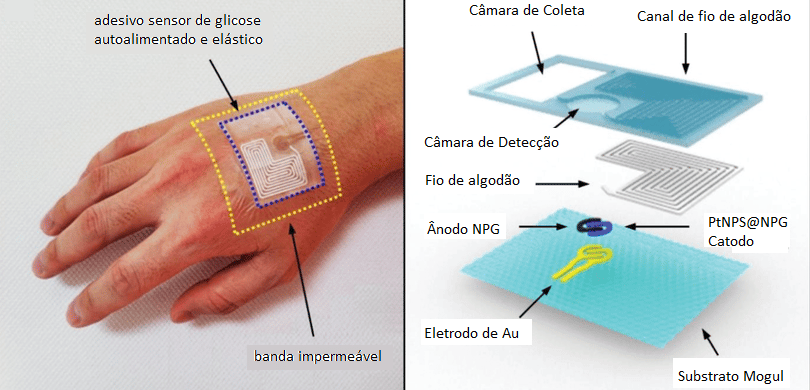Microfluidic Wearable Device Revolutionizes Chronic Wound Monitoring
Researchers at the California Institute of Technology (Caltech) have developed iCares, a smart wearable bandage that uses microfluidics and nanoengineered sensors to monitor the exudate of chronic wounds in real time. The device detects biomarkers of inflammation and infection before clinical symptoms appear, aiding in therapeutic decision-making and accelerating the healing process.
Team Spark News
4/25/20252 min read


iCares Smart Bandage: Advanced Monitoring of Chronic Wounds
Chronic wounds, such as diabetic ulcers and pressure sores, present a major challenge to global healthcare systems, affecting millions and resulting in high medical costs. The difficulty in continuously and accurately monitoring these wounds hinders timely interventions, prolongs healing time, and increases the risk of complications.
To address this need, a team of researchers at Caltech developed iCares, a wearable microfluidic device that enables real-time monitoring of chronic wound exudate, providing crucial data for effective wound management.
The iCares Device: Innovative Technology for Wound Care
iCares is a smart bandage composed of a flexible, biocompatible structure that integrates three distinct microfluidic modules, responsible for collecting, transporting, and renewing wound exudate efficiently. This approach ensures that only the freshest fluid is analyzed, delivering accurate measurements of present biomarkers.
In addition, the device incorporates an array of nanoengineered sensors capable of detecting reactive species such as nitric oxide (NO), hydrogen peroxide (H₂O₂), and oxygen (O₂), along with monitoring wound pH and temperature. These parameters are essential for assessing the inflammatory and infectious state of the lesion.
The collected data is processed by a reusable circuit board that wirelessly transmits the information to a user interface, such as a smartphone, allowing patients and healthcare providers to track healing progress in real time.
Clinical Validation and Promising Results
iCares was initially tested on murine models of infected diabetic wounds, demonstrating its ability to continuously monitor biomarkers during antimicrobial treatment. Later, the device was evaluated in 20 human patients with chronic wounds, as well as in two patients before and after surgical procedures.
Results showed that iCares can detect signs of infection and inflammation up to three days before clinical symptoms appear, enabling quicker and more effective therapeutic interventions. Furthermore, machine learning analysis of the collected data was able to classify wounds and predict healing times with accuracy comparable to that of clinical specialists.
Implications for the Future of Wound Care
The introduction of iCares represents a major advancement in chronic wound management, offering a tool that combines continuous monitoring, precise analysis, and wireless connectivity. This technology has the potential to transform wound care by enabling more personalized treatments, reducing healing time, and lowering costs associated with chronic wound care.
Additionally, the early detection of infections can reduce the need for invasive interventions, such as amputations, significantly improving patients' quality of life.
Conclusion
The development of iCares by Caltech marks a significant step in integrating advanced technologies into wound care. By enabling real-time monitoring and precise analysis of chronic wound exudate, the device provides an innovative approach to a persistent global health challenge.
With successful clinical validation and promising results so far, iCares is expected to be widely adopted in medical practice, contributing to improved clinical outcomes and more effective management of chronic wounds.
Source: Science Translational Medicine
Read more...
Image credit to Advanced Materials Interfaces
News
Stay up to date with the latest technological news, Science, Internet, Social Networks and Smartphones.
© 2025. All rights reserved.
